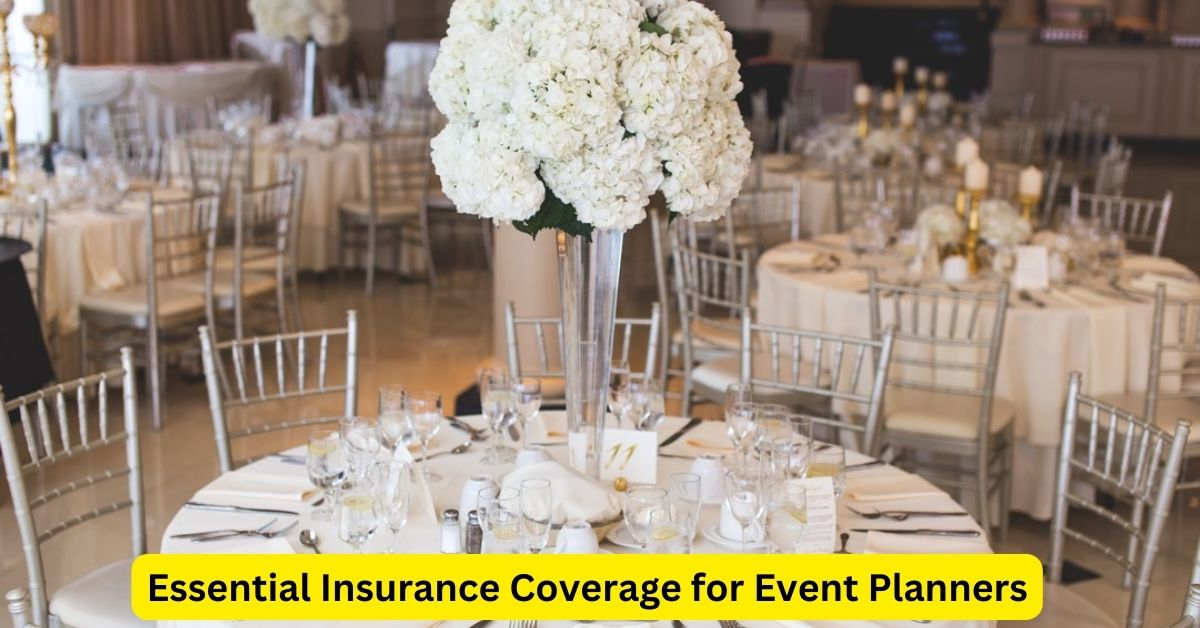In the fast-paced world of event planning, each gathering is an opportunity to create memorable experiences. From weddings and corporate functions to concerts and festivals, event planners are responsible for turning visions into reality. However, with the excitement of planning comes a myriad of risks, including unforeseen accidents, cancellations, and liability issues. Comprehensive insurance coverage is crucial for event planners to safeguard their businesses and clients. Here’s a guide to the essential types of insurance every event planner should consider.
1. General Liability Insurance
General liability insurance is foundational coverage for any event planner. It protects against claims of bodily injury, property damage, and personal injury that might occur during an event. Imagine a guest tripping over a loose cable or a vendor’s equipment damaging the venue; such incidents could result in costly legal battles.
This insurance covers medical expenses, repair costs, legal fees, and settlements, ensuring that an unexpected mishap doesn’t become a financial burden. Given the unpredictable nature of events, having general liability coverage provides peace of mind and financial security, allowing planners to focus on creating seamless events.
2. Professional Liability Insurance
Also known as errors and omissions (E&O) insurance, professional liability insurance is essential for event planners to protect against claims of negligence or mistakes in their services. Planning an event involves juggling multiple tasks, and even the most experienced planners can make errors, such as booking the wrong venue or failing to secure a critical supplier.
Professional liability insurance covers legal defense costs and damages resulting from claims of oversight or mismanagement. This coverage is especially crucial for event planners who work on high-stakes events where the smallest mistake can lead to significant financial losses and damage to their reputation.
3. Cancellation Insurance
Event cancellations can be a nightmare for planners, leading to lost revenue and unhappy clients. Cancellation insurance protects against financial losses resulting from events being canceled or postponed due to unforeseen circumstances like severe weather, illness, or venue issues.
This insurance can cover costs related to rescheduling, non-refundable deposits, and other expenses incurred due to the cancellation. For event planners, cancellation insurance ensures that they can fulfill their contractual obligations and manage unexpected setbacks without bearing the full financial brunt.
4. Property Insurance
Property insurance is vital for event planners who own or rent equipment, such as audio-visual gear, decorations, or staging materials. This coverage protects against loss, theft, or damage to these assets, ensuring that you can replace or repair essential equipment without significant out-of-pocket expenses.
Property insurance can also extend to cover rented spaces and vehicles used to transport equipment, providing comprehensive protection for all aspects of your event planning operations.
5. Workers’ Compensation Insurance
For event planners with employees, workers’ compensation insurance is a legal requirement in most jurisdictions. It covers medical expenses and lost wages for employees injured on the job, such as during event setup or teardown. This coverage not only complies with legal obligations but also demonstrates a commitment to employee safety and well-being.
Conclusion
In conclusion, insurance is an indispensable part of an event planner’s toolkit. By investing in general liability, professional liability, cancellation, property, and workers’ compensation insurance, event planners can protect their businesses and clients from unforeseen risks. Tailoring these coverages to meet the unique demands of each event ensures that planners can navigate challenges with confidence, delivering exceptional experiences without compromising on safety or financial security. Consulting with insurance professionals who understand the intricacies of the event industry is crucial for crafting a comprehensive protection strategy that aligns with your business needs and goals.

